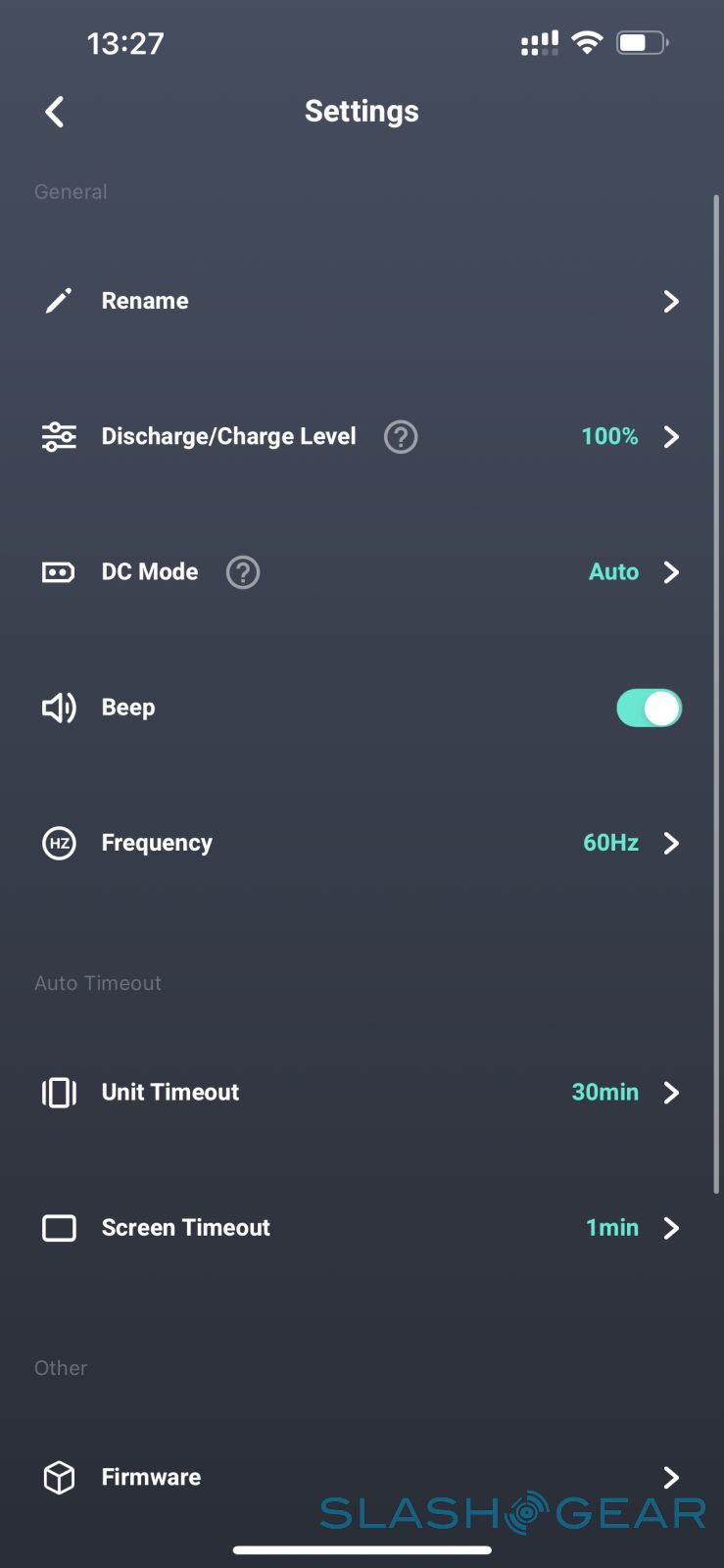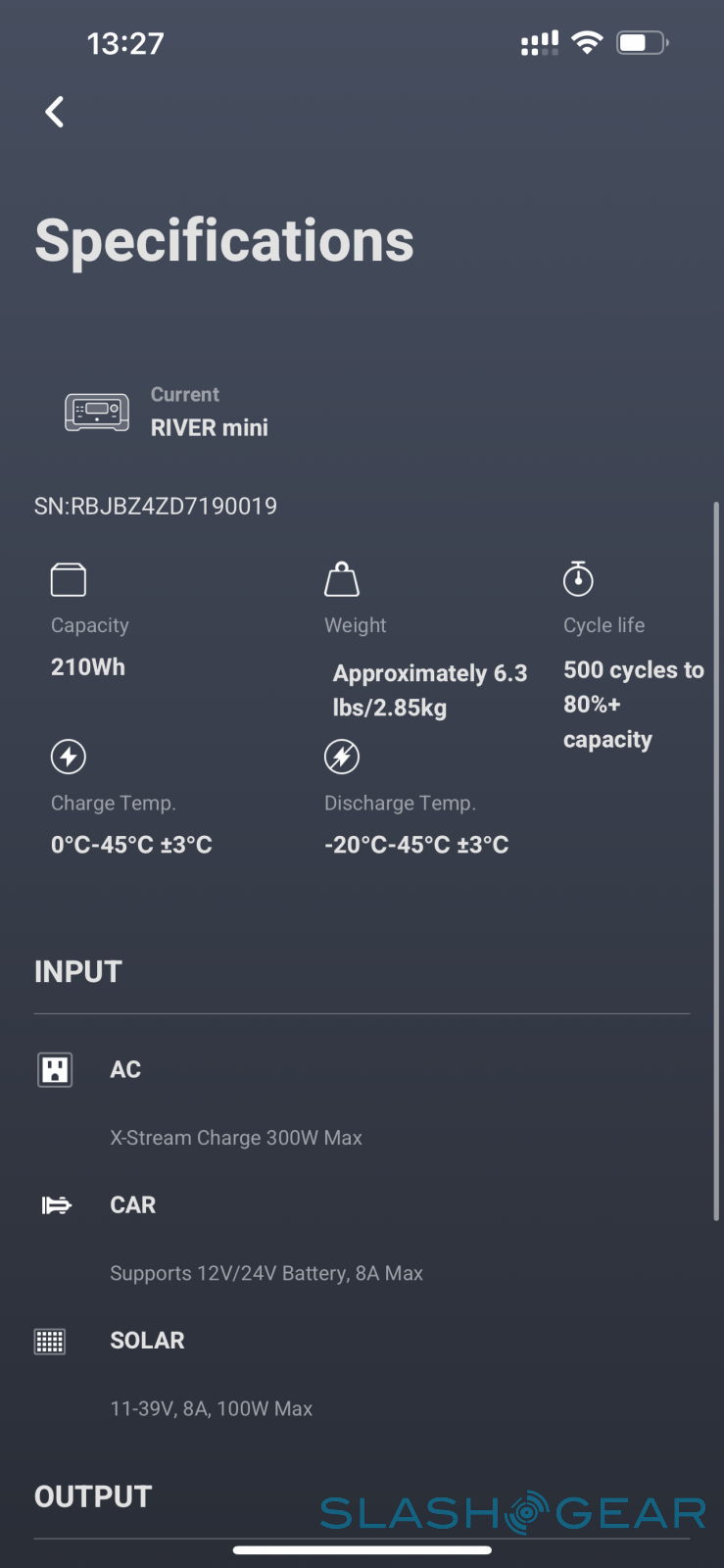EcoFlow RIVER Mini Portable Power Station Review
- Lightweight and portable design
- 100W USB-C output
- 15W Wireless Charging
- Easy app and IoT setup process
- No carrying handle
- Cover for charging ports is hard to open
- Glossy coating is a fingerprint magnet
Our dependence on electricity and electricity-powered devices has only grown in the past years, along with the carbon footprint implicit in the use of the power grid. In response to that, there has been a rise in green, safe, and silent power sources, especially during emergencies, in the form of portable power stations or solar generations. "Portable" here, however, is sometimes used loosely to describe something that can be moved around, sometimes with a great amount of effort. The EcoFlow RIVER Mini, however, makes portability its raison d'etre, but does it make too many compromises to hit that mark? Read on to find out how well this portable power station fared in our tests.
Design
Having reviewed so many hulking power stations with "portable" in their names, the size and weight of the EcoFlow RIVER Mini are like a breath of fresh air. Weighing only 2.85kg (6.3lbs) and no bigger than a stereotypical toaster, this box is something you won't think twice about carrying around with you when braving the great outdoors. Sure, it's many times bigger than a power bank, but it is also many times more versatile.
The body of the RIVER Mini is coated with a glossy finish that makes it a fingerprint magnet. Thankfully, these things aren't meant to look like art pieces anyway. It does make the entire enclosure look a bit slippery, which doesn't inspire much confidence when it comes time to actually carry it around. While it does have a grip on the back for holding the power station in transit, a foldable carrying handle would have been a more welcome mechanism.
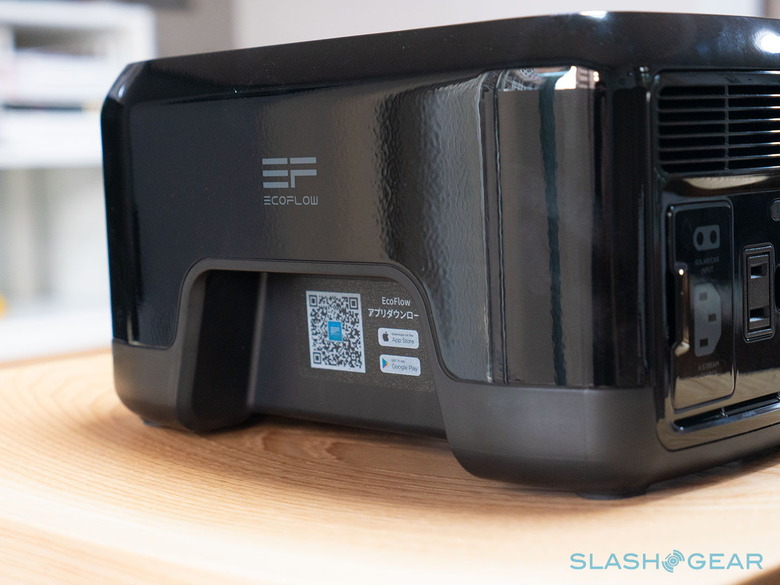
EcoFlow, however, opted not to put any handle on top of the box to make room for a wireless charging surface. Most of the other power output connections can be found in front of the RIVER Mini, except for the two AC ports on the left side (facing the box). The charging input ports, for some reason, are hidden behind a panel that we found to be a bit too cumbersome to open.
Battery Output
The EcoFlow RIVER Mini has a 210Wh lithium battery that's capable of putting out 300W. The company's patented X-Boost doubles that output to 600W, which means you can power up even small 120V refrigerators in a pinch. Of course, anything higher than that, like a hairdryer or a microwave, is a big no-no. When pushing it to the max, though, the fans start to become audible. It's not a big noisemaker, though, but still enough for more sensitive ears to pick up, especially in quiet places or at night.
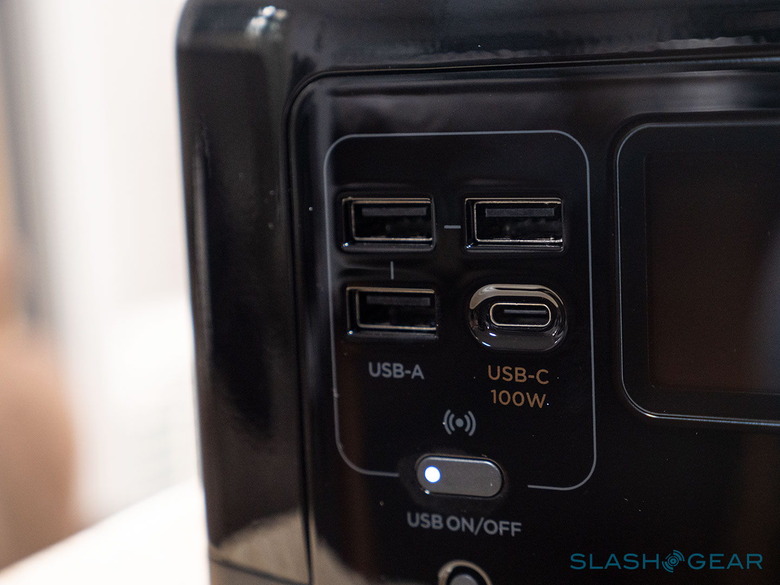
The power station has the usual set of output options, ranging from USB ports to a car charger to AC outlets. There are three 5V/2.4A USB-A ports for most smartphone needs, and the wireless model of the RIVER Mini offers a 100W USB-C port to power even hungry MacBook Pros. The earlier mentioned top can also charge phones or accessories wirelessly at 15W.
The two AC outlets can only support a maximum of 120V at 60Hz, so that might be an important consideration when deciding on the RIVER Mini. Unlike larger power stations, this one doesn't have the typical barrel-type DC ports used to power some less common devices. Then again, EcoFlow was aiming to cover the majority of charging scenarios when you're on the go, and the assortment that the RIVER Mini offers definitely checks all the boxes.
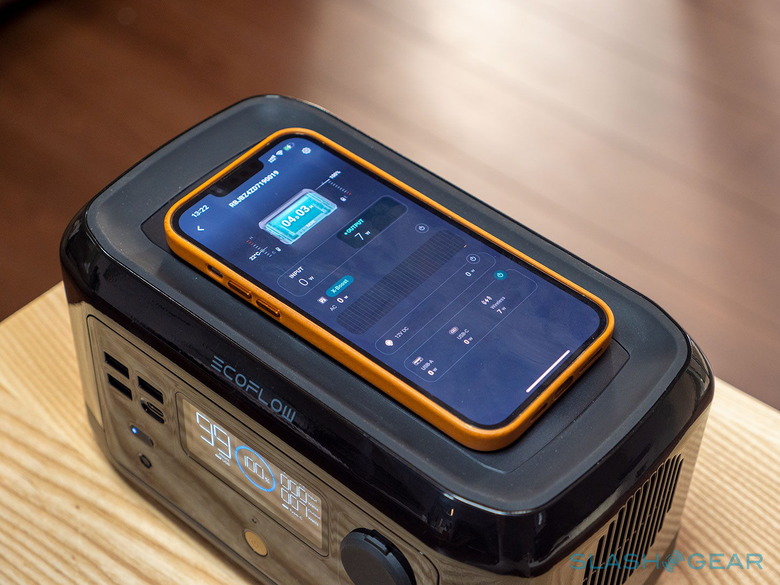
Charging Options
Unlike with its other power stations, EcoFlow isn't making solar charging a major point for the RIVER Mini. Sure, it supports that as one of three charging options, but given its size and battery capacity, it would be more efficient to charge via direct AC power instead. If, however, you do have solar panels available and a lot of time, you can definitely to better by the environment using that greener method.
With EcoFlow's X-Stream technology, the battery can be juiced up with 300W of power and go from zero to full in just 1.5 hours. Solar charging takes a lot longer at almost six hours because it's limited to 100W 8A at maximum, though that might be the only option when you're camping. There's car charging, too, though that's usually advertised as the ideal method when you're in-between places, and you need to make sure the RIVER Mini is ready anytime.
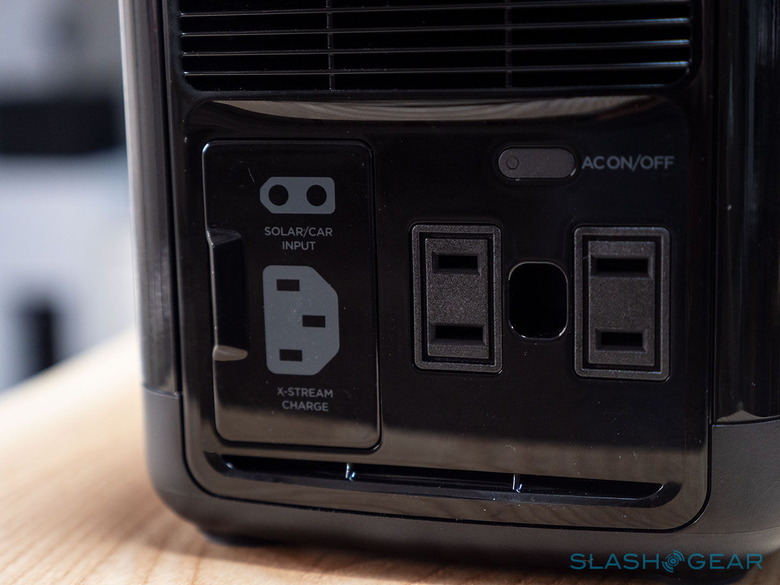
Our actual charging experience was, as expected, near the mark that EcoFlow promises but not quite as fast as the ideal. Thankfully, you can easily keep an eye on things with the large color LCD in front. That panel shows not just how much charge is left or how much more time is needed to fill the power station, but also how much power is being used by all the devices and appliances connected to it.
IoT features
Alternatively, you can also use your phone to monitor the EcoFlow RIVER Mini and even remotely control some of its features like X-Boost. Having a companion mobile app for these power stations is quickly becoming a standard feature in this market that it's more embarrassing not to have one these days. Unfortunately, the industry is still going through growing pains, so the process isn't as painless as it should be.
Fortunately, that's not the case with the RIVER Mini. The dedicated IoT button starts the pairing process, and it's easy enough to get the power station connected to your Android phone or iPhone. The app lets you do more than check the battery's stats but even set timeouts for both the unit and the screen. If you're knee-deep into EcoFlow's ecosystem, the same app will let you manage your power stations from one place as well.
Wrap-up
There really is no one-size-fits-all when it comes to portable power stations, and even the new "modular" designs don't really shout "portable" either. On the extreme end of the spectrum, the power banks we can easily drop in our bags are great for our smartphones but can hardly be relied on when it comes to many laptops.
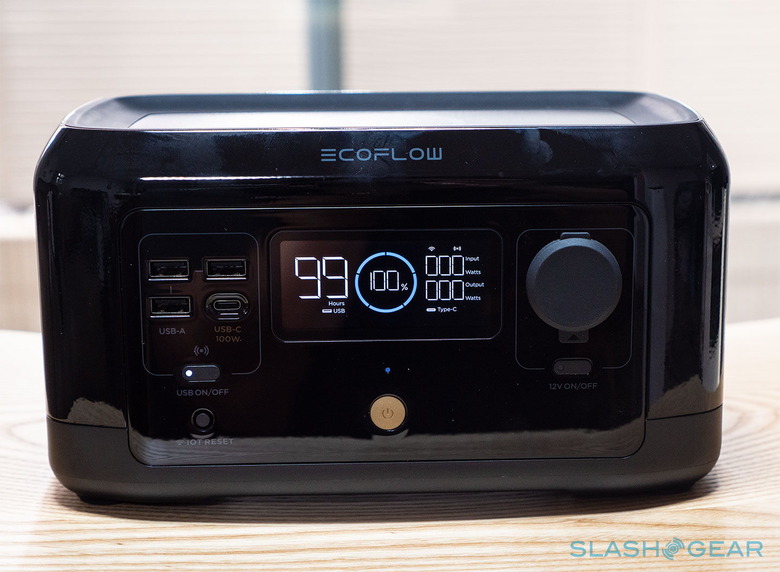
The EcoFlow RIVER Mini (Wireless Variant) seems to strike the perfect balance between power and portability, at least for people who always move from one place or another, even while staying off the grid completely.
At an introductory price of $349, it offers an all-around, general-purpose power source that you can easily carry around where needed, as long as you're comfortable gripping its backside for lack of a proper handle.


